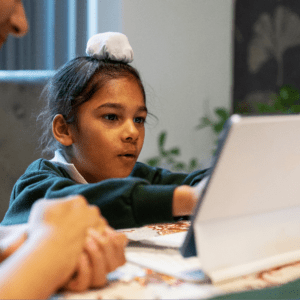When it comes to helping young people succeed, tutors and mentors can both play an important role. While both of these roles are important in a child’s life, they serve different purposes. In this article, we will discuss the differences between being a tutor and being a mentor, and why it is important for children to have both in their lives.
What is a tutor?
A tutor can help young people in a number of ways. A tutor is someone who helps a child learn specific academic skills. They provide one-on-one or small group instruction to help students master material that they are struggling with.
First, they can provide academic support. If a student is struggling in a particular subject, a tutor can help them to understand the material and improve their grades. Second, tutors can help students to develop good study habits. This is especially important for students who are preparing for college or university.

Finally, tutors can provide emotional support. They can be a sounding board for students who need someone to talk to about their problems. By providing academic, emotional, and social support, tutors can help students to succeed in school and in life.
See more: 5 Critical Differences Between a Teacher and a Mentor.
What is a mentor?
A mentor, on the other hand, is someone who provides guidance and support to help a child reach their full potential in a wide range of ways. Mentors can be role models, coaches, or simply people who are willing to listen and offer advice.
Mentors can play a vital role in the lives of young people. As someone who has gone through similar experiences, a mentor can offer guidance, support and advice. They can help young people to navigate difficult situations, find their way in the world and reach their potential.
In addition to providing practical help, mentors can also be a source of inspiration and motivation. By sharing their own stories and experiences, mentors can show young people what is possible and help them to see the world in a new light. For all of these reasons, mentor relationships can have a profound impact on young people’s lives.
Everyone needs a mentor at some point in their life. A mentor is someone who can help guide you through tough decisions, offer advice and support, and give advice on your ideas. They can help you to gain new skills and knowledge, and grow as a person.

the world.
They can answer questions, offer advice, and help young people to navigate the often-complex world of adulthood. In addition, mentors can help young people to develop a sense of self-confidence and self-esteem. Ultimately, mentors can have a profound impact on the lives of young people.
So what is the difference between tutors and mentors?
While both tutors and mentors play an important role in a young person’s life, there are some key differences between the two. Tutors focus on teaching children specific academic skills, while mentors provide guidance and support that goes beyond academics.
Tutors often have specialised training or expertise in school and study, and can provide students with the help and advice that they need to succeed academically. They also help entrench good learning and working habits that will support young people in all aspects of their lives. Mentors do not need to have this specialist knowledge or training, and you can become a mentor for a range of different reasons. It is very important that a young person can relate to their mentor, and they become role models.
Is having a mentor or a tutor more important?
It is important for everyone (including you)1 to have tutors and mentors in our lives. Tutors can provide the academic support that they need to succeed in school, while mentors can provide the guidance and support they need to navigate the challenges of life. Having both a tutor and mentor in your corner will give you the best chance at success.
They are very different roles, although some people may manage to be both. It is important to consider whether this is the best thing for the young person though; it is often better to look up to a range of people rather than relying on only a few.
Do you have a tutor or mentor in your life? How have they helped you achieve your goals? Have you ever been a mentor or a tutor? It is well worth giving it a shot! Let us know what you think in the comments below!
References:
1Goldhaber, D., Krieg, J., Naito, N., & Theobald, R. (2020). Making the most of student teaching: The importance of mentors and scope for change. Education Finance and Policy, 15(3), 581-591.





